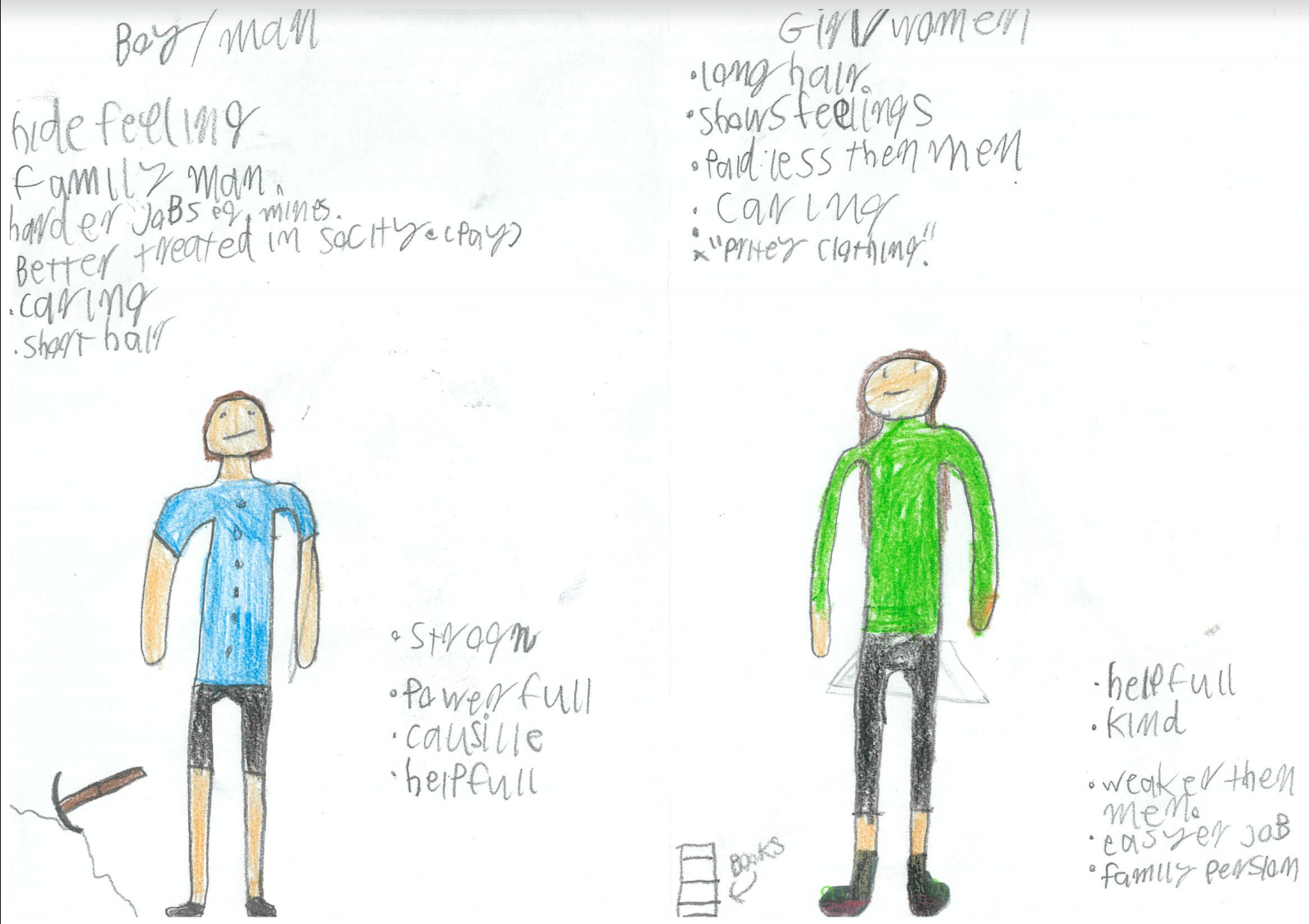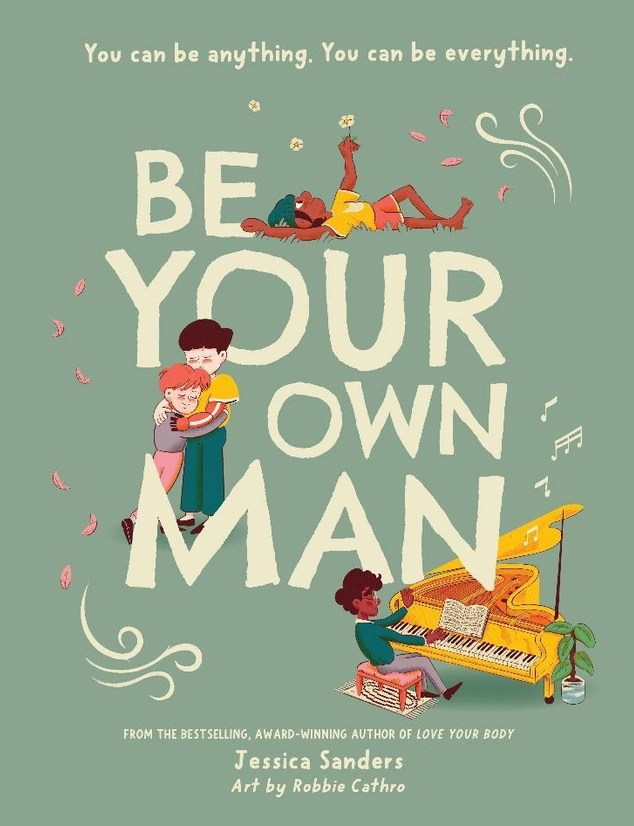Imagine if I asked your ten-year-old self to describe what it means to be a man, and what it means to be a woman. Would you have used the word ‘strong’ for both of them or just one gender? And which one? What about the words ‘pretty’, ‘quiet’ or ‘fun’?
When I was conducting research for my children’s book, Be Your Own Man, I visited a group of 40 primary school students aged 10-12. I had the opportunity to run an activity with the students. I asked them to fold a blank piece of paper in half and draw a woman on one side and a man on the other. I then asked them to fill in the white space around the drawing with words that they associated with men and women.
I asked them to fold a blank piece of paper in half and draw a woman on one side and a man on the other.
The results were both fascinating and heartbreaking. It was wonderful to see certain students perplexed by the activity. These children came back with blank pages that said ‘women and men can be anything’. The majority of the other students’ however’ portrayed extreme gender stereotypes - their men had huge muscles and were surrounded by words such as ‘strong’, ‘mean’, ‘angry’ and ‘sports’. Their women were small with impossibly small waists and big breasts, and around them words like ‘pretty’, ‘quiet’, ‘smart’ and ‘shopping’ were written in pencil. The drawings that broke my heart came from four male students. Around each of their drawings of men they had scrawled the words ‘pushes down feelings’. It broke my heart to think these boys were experiencing this pressure at this early age. I wondered how lonely it must feel to have these big emotions and feel that you can’t share them with anyone.
The drawings that broke my heart came from four male students. Around each of their drawings of men they had scrawled the words ‘pushes down feelings’. It broke my heart to think these boys were experiencing this pressure at this early age. I wondered how lonely it must feel to have these big emotions and feel that you can’t share them with anyone.

"I then asked them to fill in the white space around the drawing with words that they associated with men and women." Source: Supplied
One of the pillars of toxic masculinity or ‘the man box’ is emotional suppression. If these boys at ages 10 to 12 had already internalised this harmful message about what it means to be a man, what would the impact be on their mental and physical health as adults? At what point do we stop looking at these children as victims of toxic masculinity and start looking at them as contributors to it?
One of the pillars of toxic masculinity or ‘the man box’ is emotional suppression.
A survey of 1,000 young Australian men aged 18 to 30 conducted by found that young Australian men who believe in outdated masculine stereotypes such as ‘men don’t show emotions’ were themselves at higher risk of using violence, online bullying and sexual harassment, engaging in risky drinking and reporting poorer levels of mental health.
In 2023, we are taking great strides towards deconstructing toxic masculinity. We are beginning to tell untold stories and model new ways of being. However, there is so much work still to do, especially with our young people. Gender stereotypes permeate every aspect of our culture, they are inescapable. While we work to erase these stereotypes and write new narratives, we need to support young people to critically think about these stereotypes. If we don’t, those gender stereotypes will become their teachers.
I want you to ask the young people in your life, ‘What do you think it means to be a woman and to be a man?’ I suspect you will be taken aback by what you hear.
I want you to ask the young people in your life, ‘What do you think it means to be a woman and to be a man?’ I suspect you will be taken aback by what you hear. But once you open up that conversation, you can support a young person to see through these gender stereotypes; giving them the freedom to be true to who they really are. The best way to do this is through open and curious questioning. For example, ‘So I hear you saying that only boys can be superheroes, but what about Wonder Woman and Storm? They are women!’ Or ‘You said that baking is for girls but actually I make a really great chocolate cake and I’m a man? How about we make one together!’
When I wrote Be Your Own Man I was thinking about those young boys who wrote that men ‘push down feelings’ but I was also thinking about their dads who, when they were 10, needed to hear that they could be anything and everything.
I still don’t know when boys shift from being victims of toxic masculinity to contributors of it, but today when I look at men who are caught in toxic masculinity, I see those same boys who felt they needed to push down their feelings in order to be accepted. Jessica Sanders is an author, advocate and social worker. Jessica's previous books include Love Your Body and Me Time. Love Your Body received the Australian Book Industry Awards (ABIA) for Small Publisher' Children's Book of the Year in 2020.
Jessica Sanders is an author, advocate and social worker. Jessica's previous books include Love Your Body and Me Time. Love Your Body received the Australian Book Industry Awards (ABIA) for Small Publisher' Children's Book of the Year in 2020.

'Be Your Own Man' by Jessica Sanders Source: Supplied





